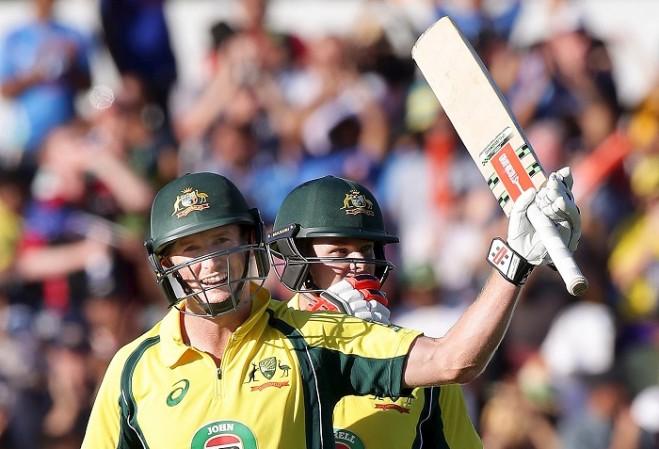
When George Bailey gloved one through to MS Dhoni in the first ODI between Australia and India and the caught behind was not given by the umpire, the immediate thought was "Ah, India are paying for refusing to use the DRS again."
Had Bailey been given out, with or without the help of the DRS, Australia would have been three down for 21, and staring at a possible defeat, even with the superhuman powers of Steve Smith.
Bailey, though, survived the golden duck dismissal, and went on to play an innings, which if anything, was more impressive than that of his captain, who struck 149 to guide Australia to a five-wicket win. The ease with which Bailey set the tone for Smith and the rest to follow in the chase was quite outstanding, leaving Dhoni and his bowlers clueless.
It would only be human to go back to the dismissal that wasn't given in the fifth over of the chase and wonder what might have been. India have been on the receiving end of several such lost decisions, owing to their insistence in not using the Decision Review System, which allows a team to go to the third umpire in a bid to reverse the on-field umpire's decision.
Asked by an Australian if India are consistently ending up on the wrong end of the crucial 50-50- decisions, mainly due to their insistence on not using the technology that is available, Dhoni admitted that might be the case. "I may agree with you," the India skipper said with a smile.
"It could have [changed the course of the game], but at the same time, we need to push the umpires to take the right decision. You have to see how many 50-50 decisions don't go in our favour. And it always happens that you have to take it, but I am still not convinced about DRS."
India's (read BCCI's) major issue with the DRS is the "umpire's call" aspect. According to Dhoni and the rest of the top brass of Indian cricket, the DRS should be black and white – it is either out or not out. There should be no avenue for the grey areas.
"Ideally, DRS should be a decision making system," Dhoni added. "But there are quite a few deviations and even the makers agree with that. And in cricket, every inch matters - not even inches, it's millimetres that matter.
"DRS shouldn't be umpires decision justification system. It should be giving the right decision. Like in tennis, you don't say if the umpire has given it out, half the ball needs to pitch on the line, or if he has given it not out, the scenario is different. It has to be plain and simple."
While there is justification in criticising that aspect of the DRS, how long can India continue suffering as a result of those lost decisions, which would have gone their way with the DRS in place? The law of averages suggest all bad and good decisions will even up for all teams over a certain period of time, but with the DRS in play for most series' which do not involve India, that law gets skewed a little bit, and not in the favour of the Indians.

















